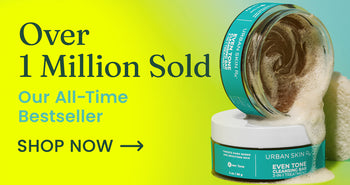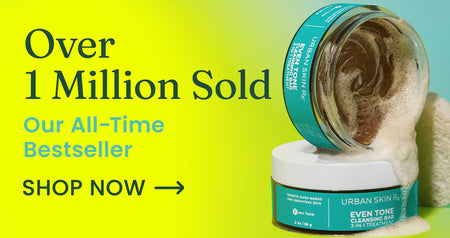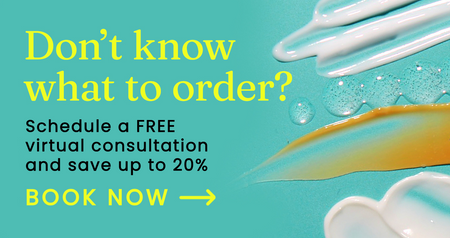How To Use Retinol to Improve Hyperpigmentation

Hyperpigmentation is one of the most frustrating skin conditions out there! It takes your otherwise glowing complexion and turns it into a minefield of insecurities and things you want to filter out before you post your picture on social media. But while hyperpigmentation is frustrating, there are several ways to confront it — and hopefully, get rid of it for good.
Many of these may already be familiar to you if hyperpigmentation is a part of your life, but you might not have thought about Retinols as a possible solution to your problem.
What Is Hyperpigmentation?
Hyperpigmentation is a really common skin condition. It happens more often with darker skin, but anybody can be affected. It occurs when something causes your skin to produce too much melanin. As a result, you end up with dark patches on your skin.
You can get hyperpigmentation on the outer layer of your skin, the inner layer of your skin, or even both. As you can imagine, hyperpigmentation is much easier to treat when it’s a surface problem. But no matter where the hyperpigmentation is, it probably isn’t something to worry about.
Hyperpigmentation is only very rarely linked to a more serious condition. The exception is if you notice your dark spot appearing quickly or changing shape around the edges — this might signal that it’s something more than hyperpigmentation. You should speak to a doctor or dermatologist as soon as possible.
Even if your hyperpigmentation appears totally normal, if you’re uneasy, it’s always worth speaking to a certified professional to lay any fears you have to rest.
Because hyperpigmentation isn’t dangerous to your health, the only damage it does is to your self-esteem. So even if your dermatologist tells you it’s nothing to worry about, you may want to pursue treatment for cosmetic reasons.
What Causes Hyperpigmentation?
There are many different causes of hyperpigmentation! One of the more common types is called Post-Inflammatory Hyperpigmentation. PIH can occur when anything injures or inflames your skin. This could be something as common as acne or eczema to slightly more unusual triggers like insect bites or blisters. The skin around the affected area will darken due to this damage, leaving you with a second round of skin problems to solve.
Another form of hyperpigmentation is called Melasma. We don’t know exactly what causes melasma, although we do know that it’s often triggered by things like hormone fluctuations and sun exposure.
Hyperpigmentation can also occur as a natural consequence of aging and having spent years in the sun. While you’re not likely to end up with hyperpigmentation after one long beach day, it’s fairly common as you hit forty and over.
What Is Retinol?
If you’re into skincare, you’ve probably heard of Retinols before. Retinols are a Vitamin A-based ingredient that encourages your body to produce super helpful things like collagen and elastin, which help your skin stay young and bouncy. Retinols also increase the rate at which your skin refreshes itself — so rather than your skin cells turning over every month or so, you’ll have new, fresh skin cells more often, which equals healthier skin.
Retinols are a really common ingredient in over-the-counter creams and serums designed to help combat visible signs of aging. They’re also clutch when it comes to regulating your skin’s oil production. So there are many reasons to work Retinol in your routine even before we’ve covered hyperpigmentation!
You might also recognize the word Retinol because it’s similar to another well-known skin savior called Retinoids. Retinoids and Retinol sound the same because they are really closely related. Retinoids are Vitamin A-based as well. They’re just usually a stronger solution that is only available with a prescription.
An easy way to remember the difference is just to know that Retinols are over the counter, and Retinoids are prescription-only — with one exception. Occasionally you may come across a cream or serum that claims to have Retinoids, but to sell Retinoids over-the-counter, they have to be pretty weak.
So if you aren’t getting your Retinoids from a doctor or dermatologist, it’s probably better to stick to Retinols, which can come in stronger, more effective formulations.
How Do Retinols Help Hyperpigmentation?
While you may know Retinols for their ability to turn back the clock on the appearance of fine lines and wrinkles, they’re also great to have in your repertoire when it comes to tackling hyperpigmentation.
Skin brightening treatments tend to take center stage when you’re looking for options to help reduce the appearance of hyperpigmentation. Alpha Hydroxy Acids or other chemical exfoliants can, of course, help reduce the appearance of any skin blemishes or imperfections by refreshing the surface of your skin.
But hyperpigmentation can often affect not just the top layer of your skin but also the deeper layers as well. If you're not having much luck with your current course of treatment, you might need something that goes a bit harder.
Because Retinol affects collagen and elastin production in your skin cells, their effects are a little further reaching. So if you have really stubborn hyperpigmentation, Retinols may be what you need to give your recovery a boost.
How Do You Use Retinols?
Retinols can be worked into your daily skincare routine pretty easily! Unlike some skincare treatments that promise big results, Retinols aren’t very challenging to use, and you can get them in a wide variety of forms.
When introducing your skin to Retinol, one thing to bear in mind is that it can dry out your skin. You should introduce Retinol into your routine gradually. Start with a small amount twice a week, giving your skin a break in between. Once you’re sure your skin won’t react — or any minor irritation has subsided — you can increase your usage until you’re using it every other day, or even daily if your skin tolerates it.
Even if your skin tolerates Retinol well or you’ve eased into it, it’s important to keep your skin hydrated while using Retinol. There’d be nothing more tragic than using Retinol to treat your hyperpigmentation… only to end up with post-inflammatory hyperpigmentation because the Retinol irritated your skin.
We recommend using Retinol at night — although you can use it at any point in the day, depending on your schedule and preferences. By applying your Retinol in the evening, you can follow it with a luxurious moisturizer like our super-rich Mega Moisture Illuminating Night Cream to keep your skin smooth and soften.
The most common way to introduce Retinol into your routine is to use it as a serum. Find something with a strong Retinol solution like our Retinol Rapid Repair and Dark Spot Treatment, and apply it after you wash your face in the evening and apply your night cream. This will allow it enough time to do its job while you sleep.
If adding another daily element to your skincare routine is too much for you, you can try a stronger treatment that you can use less frequently. Our Dermapeel Smooth and Glow Treatment 2 Step System is great if you’re looking for something hardcore enough to tackle your hyperpigmentation — though gentle enough to be safe for your skin — that you only really need to use once or twice a week.
If your skin proves to be super sensitive to Retinol and you’re wary of applying it all over your face, a spot treatment that uses Retinol might be the one for you! Our Clear Complexion Acne Serum and Spot Treatment allows you to apply the Retinol solution only to the affected area.
Can Retinol Prevent Hyperpigmentation?
If you’ve been using more intensive skin brightening treatments to target your hyperpigmentation — like Hydroquinone or Cysteamine — you might be thinking that anything strong enough to tackle your dark marks and blemishes is probably too strong to use long term.
And it’s true, to an extent. If you’re using Hydroquinone or Cysteamine, your doctor or dermatologist will likely advise that you cease using them when you see results or after a few months.
Especially if your hyperpigmentation is recurring, like with melasma, or if you’re prone to acne-induced post-inflammatory hyperpigmentation, this might seem like a bit of a cruel gift. Those ingredients help your hyperpigmentation… but you have to stop using them when it improves, so you end up getting hyperpigmentation again later. Lather, rinse, repeat.
The great thing about Retinols is that they’re an excellent ingredient to keep in your skincare rotation. So even if your hyperpigmentation clears up, you can continue using your Retinol to get its fullest effects.
And because Retinol helps to keep your skin cells active, continued use can help keep hyperpigmentation at bay.
In Conclusion
While you might know Retinols for their ability to treat other skin issues, they can actually be a very effective well to help improve the appearance of your hyperpigmentation. Retinols can help get your skin back to its clear, glowing self when used correctly and consistently.
Engagement Manager




